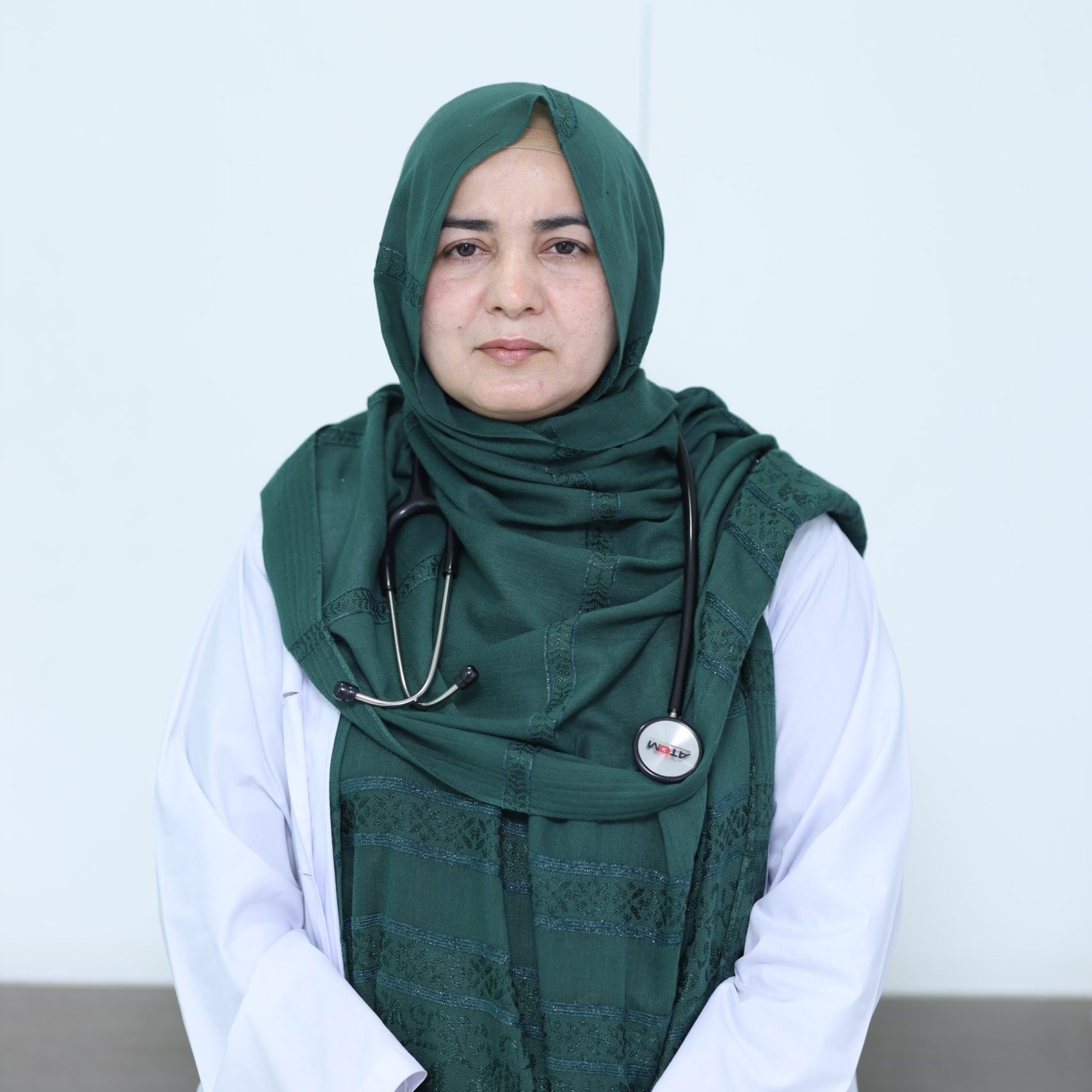The Pulmonology Department at our hospital specializes in the diagnosis and treatment of respiratory conditions and lung diseases. Led by expert pulmonologists, our team offers comprehensive care for patients with asthma, chronic obstructive pulmonary disease (COPD), pneumonia, lung cancer, and sleep disorders such as sleep apnea. We provide advanced diagnostic testing, including pulmonary function tests, bronchoscopy, and imaging studies, to accurately assess lung health and develop individualized treatment plans. With a focus on improving respiratory function and quality of life, we are dedicated to delivering compassionate care and supporting patients in managing their pulmonary conditions effectively.
Services:
Our pulmonology services specialize in the diagnosis and treatment of respiratory conditions. We offer comprehensive care for lung diseases such as;
- Asthma
- Chronic obstructive pulmonary disease (COPD)
- Pneumonia
- Lung cancer
Our team of pulmonologists provides advanced diagnostic testing, including;
- Pulmonary function tests and imaging studies
- Personalized treatment plans tailored to each patient’s needs
We are committed to improving respiratory health and enhancing the quality of life for our patients through compassionate and effective care.
Our Doctors
Dr. Urfi
Consultant PulmonologyPro DR Matiur Rehman
Consultant PulmonologyDr. Syeda Saman Raza
Consultant PulmonologyDr. Rizwan Athar
Consultant General MedicineFAQs:
1. Who is a pulmonologist?
Pulmonologists specialize in the diagnosis and treatment of respiratory disorders, including conditions such as asthma, COPD, pneumonia, tuberculosis, lung cancer, and sleep apnea. They perform diagnostic tests, interpret imaging studies, prescribe medications, and develop treatment plans tailored to each patient's needs.
2. When should I see a pulmonologist?
You should consider seeing a pulmonologist if you experience persistent respiratory symptoms such as coughing, wheezing, shortness of breath, chest pain, or if you have been diagnosed with a lung condition that requires specialized care. Your primary care physician can refer you to a pulmonologist if necessary.
3. What happens during a visit to a pulmonologist?
During your initial visit, the pulmonologist will review your medical history, perform a physical examination, and may order diagnostic tests such as pulmonary function tests, chest X-rays, or CT scans to assess your lung function and identify any abnormalities. Based on the findings, they will discuss treatment options and develop a management plan with you.
4. What are some common treatments provided by pulmonologists?
Pulmonologists may prescribe medications such as bronchodilators, corticosteroids, or antibiotics to manage respiratory conditions. They may also recommend lifestyle modifications, pulmonary rehabilitation, oxygen therapy, or surgical interventions such as lung resection or lung transplant for certain conditions.
5. How can I prevent lung disease?
To maintain lung health and reduce the risk of lung disease, it's important to avoid smoking and exposure to secondhand smoke, pollutants, and environmental toxins. Regular exercise, maintaining a healthy weight, practicing good hygiene, getting vaccinated against respiratory infections such as influenza and pneumonia, and following safety precautions in occupational settings can also help prevent lung disease.
6. Can pulmonologists treat sleep disorders?
Yes, pulmonologists often diagnose and treat sleep disorders such as sleep apnea, insomnia, and restless legs syndrome. They may conduct sleep studies (polysomnography) to evaluate sleep patterns and breathing abnormalities and prescribe therapies such as continuous positive airway pressure (CPAP) therapy for sleep apnea.
7. Is lung cancer treatable?
Lung cancer is treatable, especially if detected early. Treatment options may include surgery, chemotherapy, radiation therapy, targeted therapy, immunotherapy, or a combination of these approaches. Pulmonologists work closely with oncologists and other specialists to develop individualized treatment plans for patients with lung cancer. Early detection through screening programs can improve outcomes and survival rates.
These FAQs provide general information about pulmonology and common questions related to respiratory health. If you have specific concerns or symptoms, it’s essential to consult with a qualified healthcare professional for personalized advice and treatment.





